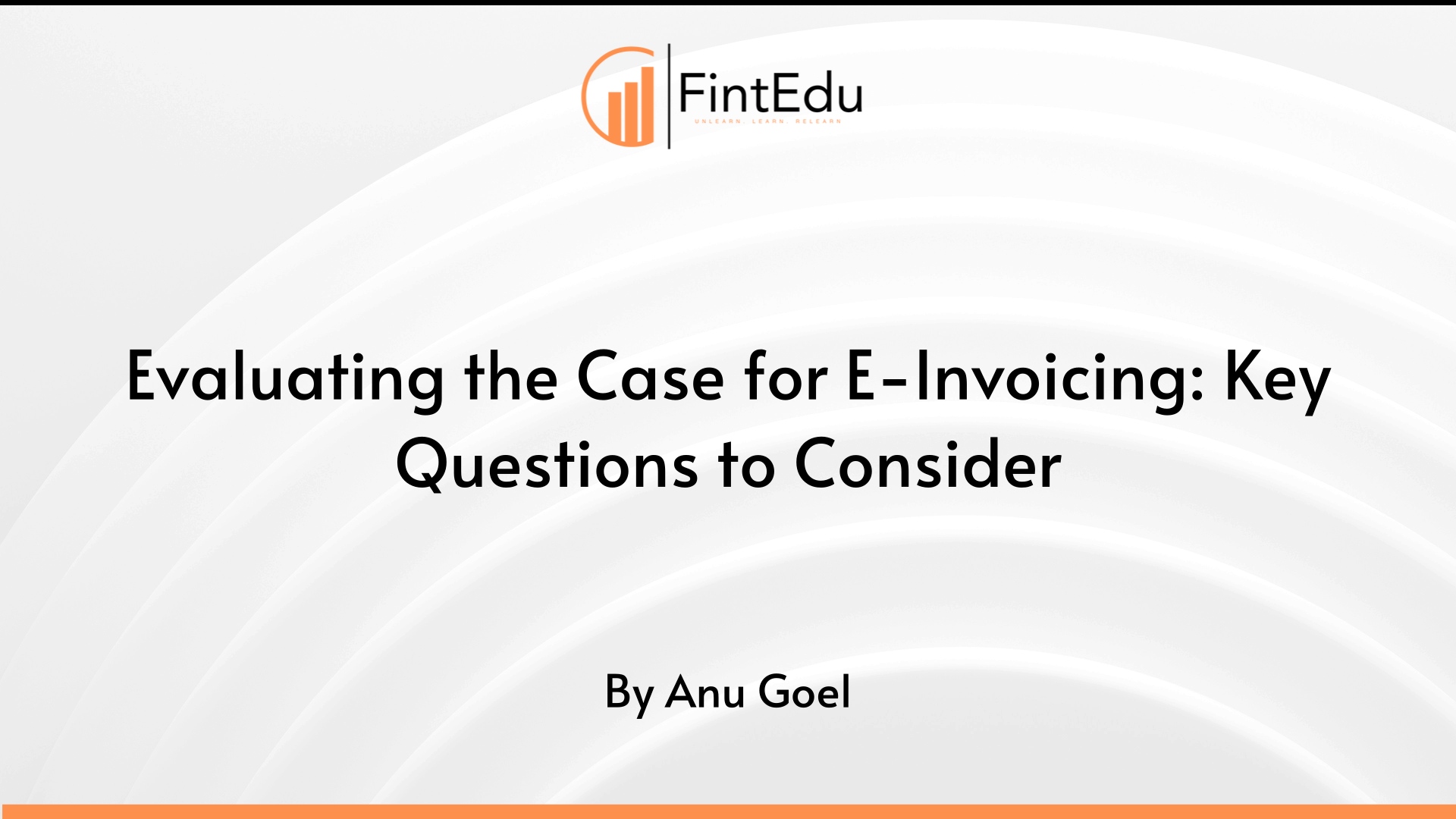LISTEN TO THIS ARTICLE
With e-invoicing becoming a reality soon in the UAE, it's crucial to assess key areas such as invoicing processes, costs, compliance requirements, and the overall impact on stakeholders. Gaining clarity on these factors can help determine whether e-invoicing aligns with your business objectives and delivers the expected advantages.
Strategic Fit
1. What are our current invoicing processes?
- Analyze the efficiency, speed, and accuracy of the current manual or paper-based processes.
2. What are our primary goals for adopting e-invoicing?
- Are we aiming for cost reduction, improved accuracy, faster processing, or better compliance?
3. How does e-invoicing align with our overall digital transformation strategy?
- Consider how e-invoicing fits into broader technology and process improvement plans.
Cost and ROI
4. What are the initial and ongoing costs associated with e-invoicing implementation?
- Include software costs, training, and any other potential expenses.
5. What cost savings or efficiencies can we expect from e-invoicing?
- Estimate reductions in processing times, paper costs, and manual labor.
6. What is the expected return on investment (ROI) from adopting e-invoicing?
- Calculate potential savings versus the investment required.
Compliance and Risk
7. What are the legal and regulatory requirements for e-invoicing in our region?
- Ensure understanding of compliance requirements specific to your jurisdiction.
8. How will e-invoicing impact our compliance with tax regulations and audit processes?
- Consider how e-invoicing could streamline compliance and reduce audit risks.
9. What are the data security and privacy implications of e-invoicing?
- Assess how e-invoicing affects data protection and security protocols.
Technology and Integration
10. What are the technical requirements for implementing e-invoicing?
- Evaluate hardware, software, and network requirements.
11. How will e-invoicing integrate with our existing accounting and ERP systems?
- Ensure compatibility and ease of integration with current systems.
12. What level of IT support and maintenance will be required?
- Determine the resources needed for ongoing technical support.
Supplier and Customer Impact
13. How will e-invoicing affect our relationships with suppliers and customers?
- Consider the ease of adoption for external parties and any required changes in their processes.
14. What support will be needed to train suppliers and customers on e-invoicing?
- Plan for training and onboarding processes for stakeholders.
Change Management
15. What is the current level of staff readiness for adopting e-invoicing?
- Assess employee willingness and capability to adapt to new processes.
16. How will we manage the change and transition to e-invoicing?
- Develop a change management strategy to guide the transition smoothly.
Measurement and Evaluation
17. What metrics will we use to measure the success of e-invoicing implementation?
- Define key performance indicators (KPIs) to evaluate the effectiveness of e-invoicing.
18. How will we monitor and report on the benefits and challenges post-implementation?
- Establish a framework for ongoing assessment and reporting.
By addressing these important questions, businesses can make an informed decision about adopting e-invoicing. This thoughtful approach ensures that the transition enhances efficiency, reduces costs, and supports long-term success.
Disclaimer: Content posted is for informational and knowledge sharing purposes only, and is not intended to be a substitute for professional advice related to tax, finance or accounting. The view/interpretation of the publisher is based on the available Law, guidelines and information. Each reader should take due professional care before you act after reading the contents of that article/post. No warranty whatsoever is made that any of the articles are accurate and is not intended to provide, and should not be relied on for tax or accounting advice



